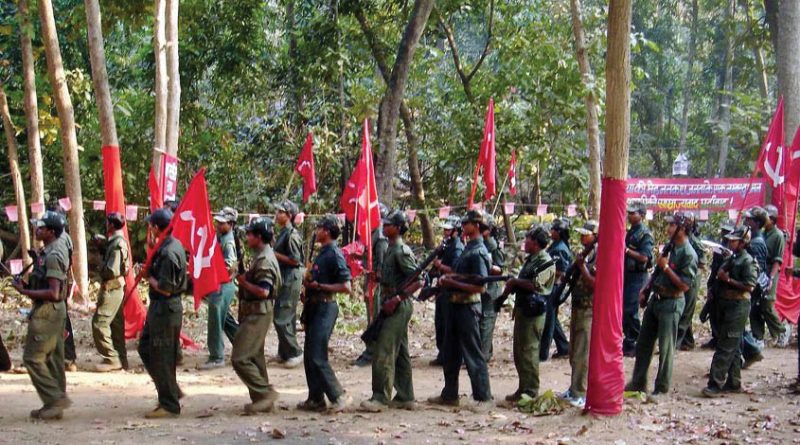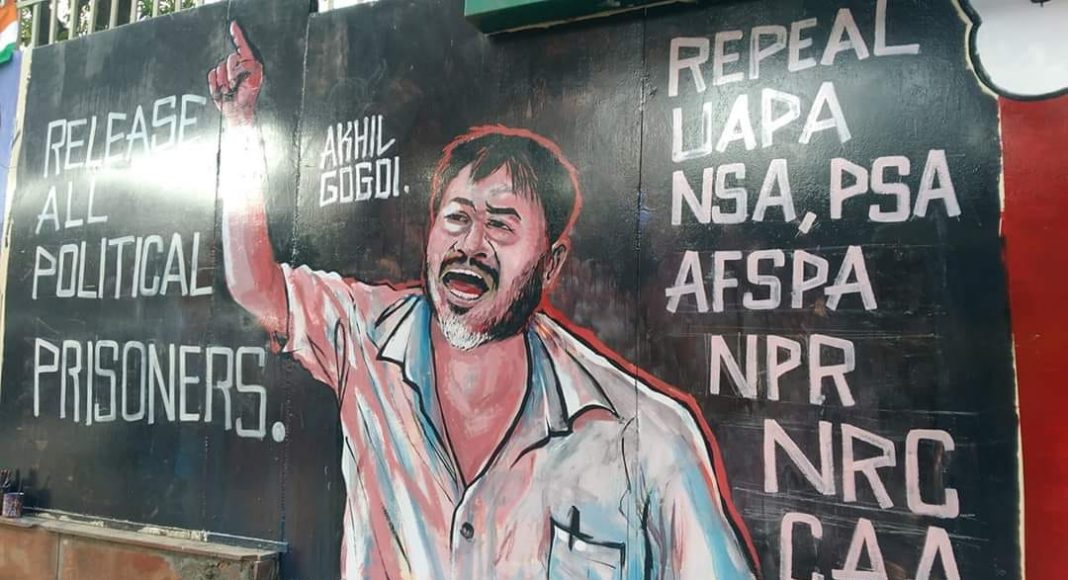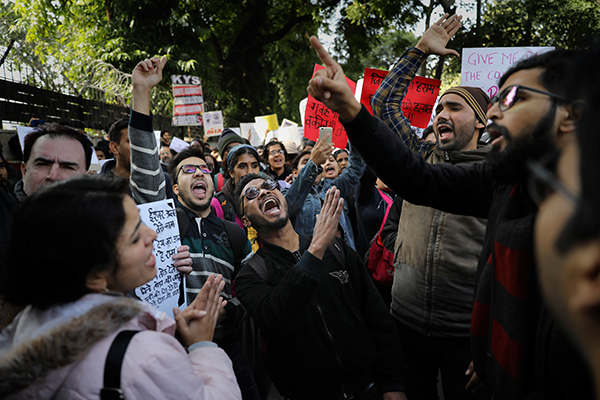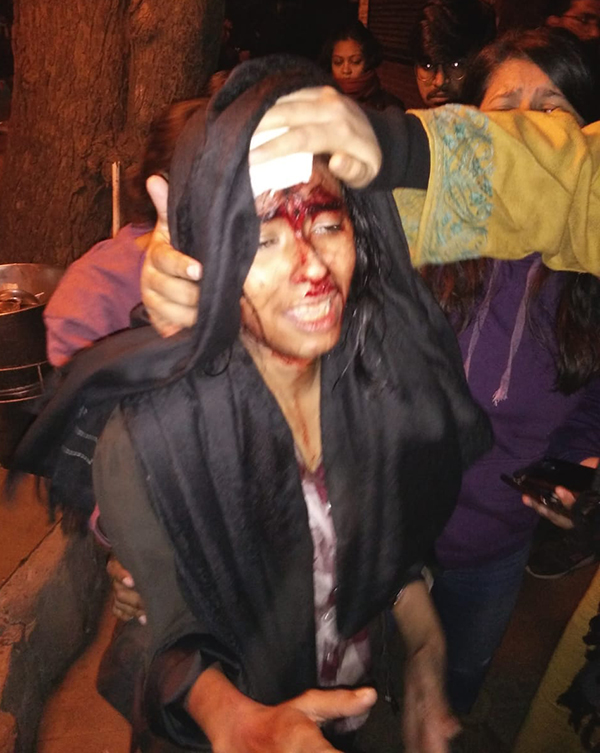On Sunday, January 5, fascist thugs attacked students, professors,
and university staff at Jawaharlal Nehru University (JNU) in New Delhi,
India, one of India’s major universities and known as a progressive
campus.
Dozens of masked men, chanting fascist slogans armed with bricks,
rocks, and iron rods, charged into campus, brutally assaulting the
students and university personnel, forcing them to run “for their lives”
as one student said. The mob chased them into their dormitories,
forcing students to barricade themselves in their rooms, as the fascists
vandalized their dorms, specially singling out progressive or Muslim
students to beat up based on the posters and books in their rooms.
“They pelted stones at us, stones half the size of bricks,” one
professor who was hit in the head and bleeding profusely told the
New York Times. “I saw the face of terror.”
After an hour-long rampage, with the attackers openly roaming around
campus menacing people as police stood by and did nothing, at least 42
students and others had been injured, most hospitalized, and many more
terrorized. Videos showed police standing by as students were being
beaten, having turned off the street lights and letting the mob roam
without interference.
Despite revelations by the press of who was behind these fascist mob
attacks, as of this writing no arrests have been made—and the only
people charged are the victims, including Aishe Ghosh, the student union
president, who was hit over her eye with an iron rod and was taken to
the hospital.
What has become clear is these thugs are part of or closely
associated with the Hindu fascist student group Akhil Bharatiya
Vidyarthi Parishad, associated with Prime Minister Narendra Modi’s
ruling party and its parent organization, the Rashtriya Swayamsevak
Sangh (RSS). One RSS leader defended the assault: “The students of JNU
are communists and they had to be taught a lesson.”
The attack on JNU is part of a larger campaign by the fascists to
reshape academia to serve their whole fascist agenda, since Modi’s
election in 2014. They have moved across the board in undercutting
student and university rights, and appointing pro-RSS administrators,
while encouraging the forming of Nazi style fascist thug organizations
on campuses. JNU, as a leading progressive university, has been in their
crosshairs.
“For the Modi government, JNU has been a symbol of the territory they
haven’t been able to capture,” a student of the RSS told the
New York Times. “They are projecting it as a symbol of everything that is bad in this country, and that is why they need to destroy it.”
This vicious attack of terror sparked a further wave of protests by
students and others throughout India, with some erupting that night
itself, and spreading through the next week across the country. These
student protests are a very positive development, standing in solidarity
with the JNU students who have refused to back down, calling for the
dismissal of various authorities responsible, feeling, as one student
commented, “an unprecedented attack on our existence.” One of India’s
top film actresses, along with some other celebrities, joined the vigils
of solidarity against the attack, with fascists calling for boycott of
their films and art. Many others joined the students who occupied and
protested over multiple days and nights at one of India’s most famous
landmarks, the Gateway of India in Mumbai.
Background on the Hindu Fascist Assault Since the Re-election of Modi
Modi and the RSS program is to turn India from a secular state, with
at least formal rights for all the country’s religious and national
minorities, into a fascist state that is a “Hindu rashtra,” i.e., a
Hindu country. India has the second largest number of Muslims in the
world, with about 200 million Muslims, and this program is a direct
attack on Muslims and other minorities.
After Modi’s re-election, their fascist assault on the secular foundations of the India state has recently taken major leaps
1—with
the withdrawal of autonomy from Kashmir, India’s only Muslim majority
state, and millions being declared stateless in the state of Assam,
bordering Bangladesh and with a large number of Bengali migrants. They
were forced to take a punitive new citizenship test which forced them to
produce documents proving they or their ancestors lived in India before
1971 or be declared foreign migrants.
In mid-December the “Citizenship Amendment Bill” was passed in
parliament. The bill overtly discriminates against Muslims, making
religion a criterion for determining which immigrants can be allowed for
Indian citizenship, specifically excluding Muslims from being
considered. This goes along with a proposed National Register of
Citizens (NRC), which will be an official record of all legal citizens
of India where individuals would have to provide a prescribed set of
documents for inclusion. These are potentially genocidal measures
against the Muslims in India, given the underlying ideological program
of the Modi Hindu-fascists.
These draconian, anti-Muslim measures have sparked massive protests,
which have cut across religious lines throughout India and that have
continued for the past month, with students playing a key and very
dynamic role. Savage police attacks and repression have fueled greater
outrage and resistance, turning the current upsurge into one of the most
powerful student-led protests since the country obtained independence
in 1947.






























